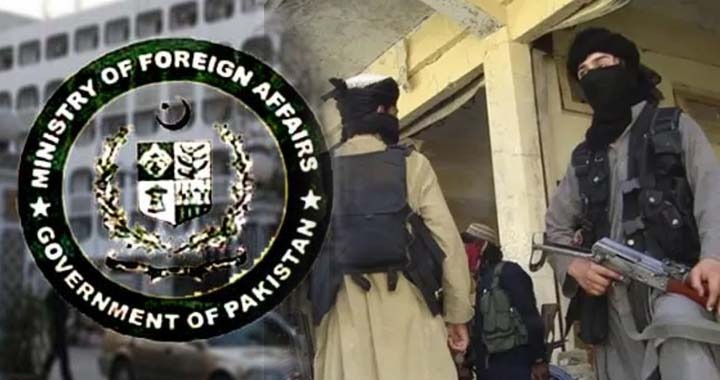Pakistan has never refused dialogue with any government in Kabul, but it will not engage in negotiations with any terrorist group, whether the banned Tehreek-e-Taliban Pakistan (TTP) or the Baloch Liberation Army (BLA), Foreign Office spokesperson Tahir Hussain Andrabi said during a weekly press briefing.
He stated that the Afghan Taliban are providing support to anti-Pakistan terrorist groups and attempting to fuel Pashtun nationalism, despite Pakistan having a larger Pashtun population than Afghanistan. According to the spokesperson, the rise of terrorism in Pakistan has been particularly pronounced since the Taliban returned to power in Kabul.
Responding to recent statements by Afghan Taliban leaders, Andrabi emphasised that trade is a sovereign decision of each country. Trade and transit with Afghanistan will only be possible once all terrorist sanctuaries are eliminated. He stressed that commerce is not more important than human lives, and the Kabul government must answer for Afghan terrorists involved in attacks in Wana and Islamabad.
The spokesperson also recalled that Pakistan-Afghanistan relations have had a bitter history since the creation of Pakistan, when Afghanistan refused to recognise Pakistan at the United Nations and contested the Durand Line. Despite propaganda calling for Pashtunistan and portraying Pashtuns on both sides of the border as a single nation, Pakistan’s unity and territorial integrity remain intact.
Decades of civil war in Afghanistan and interventions by global powers have weakened the country, and no Afghan government has implemented effective grassroots development measures. While hopes were high that the Taliban’s return would stabilise Afghanistan, released TTP militants are today carrying out attacks in Pakistan while freely moving inside Afghanistan.
Andrabi criticised the Taliban’s decision to block trade with Pakistan as a misguided misunderstanding, noting that Afghanistan accounts for a small portion of Pakistan’s exports, while most of Afghanistan’s essential imports come from Pakistan. Hence, any trade restrictions would harm Afghanistan more than Pakistan.
He further pointed out that the Pak-Afghan border is being exploited for illegal trade and smuggling, creating economic challenges for Pakistan. Strict border control and allowing only legal trade is necessary.
Finally, the spokesperson said that Afghanistan’s problems cannot be solved by confrontation with neighbours. Instead, the country needs a stable, representative government, strong institutions, and investment in education, healthcare, and development infrastructure—yet the Taliban government is focusing on an anti-Pakistan narrative instead of addressing these urgent needs.





